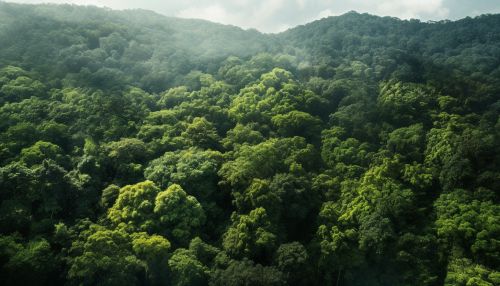Natural Resources Management
Introduction
Natural resources management refers to the sustainable utilization of major natural resources, such as land, water, air, minerals, forests, fisheries, and wild flora and fauna. Together, these resources provide the ecosystem services that underpin human life. The perspective of this article is to discuss the role of natural resources management in ensuring a sustainable future.


Concept and Importance
The concept of natural resources management essentially focuses on the way in which mankind uses and manages the planet's natural resources. It involves the application of different scientific disciplines, such as biology, ecology, geography, and economics, to understand the complex relationships between nature and human activities. The goal is to develop strategies that will ensure the long-term sustainability of these resources.
The importance of natural resources management cannot be overstated. As the human population continues to grow, the pressure on natural resources intensifies, leading to degradation, depletion, and ultimately, a decline in the quality of human life. Therefore, effective management of natural resources is crucial for maintaining ecological balance and ensuring long-term sustainability.
Types of Natural Resources
Natural resources can be classified into two main types: renewable and non-renewable resources.
Renewable Resources
Renewable resources are those that can be replenished naturally over time. This category includes resources such as sunlight, wind, water, and biological resources (forests, fish stocks, etc.). The management of renewable resources focuses on maintaining their rate of replenishment and ensuring that their use does not exceed their rate of regeneration.
Non-renewable Resources
Non-renewable resources, on the other hand, are those that cannot be replenished once they are consumed. This category includes fossil fuels (coal, oil, and natural gas), minerals, and metals. The management of non-renewable resources focuses on minimizing their depletion by promoting efficiency and developing alternatives.
Principles of Natural Resources Management
Effective natural resources management is guided by several key principles. These include the precautionary principle, the polluter pays principle, the principle of sustainable use, and the principle of equitable use.
Precautionary Principle
The precautionary principle advocates for caution in actions or policies that have the potential to cause harm to the public or the environment, even if the cause-and-effect relationships are not fully established scientifically.
Polluter Pays Principle
The polluter pays principle states that those who cause pollution should bear the costs of managing it to prevent damage to human health or the environment.
Principle of Sustainable Use
The principle of sustainable use emphasizes that natural resources should be used in a way that meets the needs of the present generation without compromising the ability of future generations to meet their own needs.
Principle of Equitable Use
The principle of equitable use asserts that natural resources should be used in a way that equitably distributes their benefits, both in the present and for future generations.
Natural Resources Management Strategies
There are several strategies for natural resources management, including conservation, preservation, and sustainable use.
Conservation
Conservation involves the wise use of natural resources to ensure their long-term sustainability. It includes practices such as recycling, reforestation, and the establishment of protected areas.
Preservation
Preservation involves protecting natural resources from human activities that might lead to their degradation or destruction. This strategy is often used for resources that are unique or have significant ecological, cultural, or aesthetic value.
Sustainable Use
Sustainable use involves using natural resources in a way that meets the needs of the present without compromising the ability of future generations to meet their own needs. This strategy involves balancing the demand for resources with their rate of regeneration and the capacity of the environment to absorb waste products.
Challenges in Natural Resources Management
There are several challenges in natural resources management, including overexploitation, pollution, climate change, and conflicts over resource use.
Overexploitation
Overexploitation occurs when the use of a natural resource exceeds its rate of regeneration. This can lead to the depletion or extinction of the resource.
Pollution
Pollution can degrade natural resources and reduce their capacity to provide ecosystem services. It can also harm human health and the health of other species.
Climate Change
Climate change can alter the distribution and quality of natural resources. It can also exacerbate other challenges, such as overexploitation and pollution.
Conflicts Over Resource Use
Conflicts over resource use can arise when different stakeholders have competing interests in a resource. These conflicts can hinder effective management and lead to overexploitation or degradation of the resource.
Conclusion
Natural resources management is crucial for maintaining the ecological balance and ensuring the sustainability of our planet. By understanding the principles and strategies of natural resources management, we can make informed decisions that will benefit both the present and future generations.
